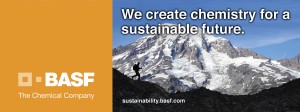 Sitting down to write a “goodbye” blog is actually a really difficult task to do. The most obvious reason is that this post is to celebrate a degree in accounting, which limits how entertaining it can be. But more importantly, it is incredibly difficult to say goodbye to this experience in my life. I have never been so challenged personally, professionally, and academically, and there have definitely been a lot of moments I questioned if all of this was even worth it. I have faced decisions that would shape the person and professional I want to become on an almost daily basis. I failed a number of times, but in the end I am emerging with a graduate degree in hand and a dream in mind.
Sitting down to write a “goodbye” blog is actually a really difficult task to do. The most obvious reason is that this post is to celebrate a degree in accounting, which limits how entertaining it can be. But more importantly, it is incredibly difficult to say goodbye to this experience in my life. I have never been so challenged personally, professionally, and academically, and there have definitely been a lot of moments I questioned if all of this was even worth it. I have faced decisions that would shape the person and professional I want to become on an almost daily basis. I failed a number of times, but in the end I am emerging with a graduate degree in hand and a dream in mind.
As everyone starts changing their focus from school to graduation and celebrating the moment, its important to take a step back and take note of what we all are celebrating.
We are not celebrating a degree in accounting. We are here to celebrate our success over an obstacle we have collectively, and triumphantly, overcome. An obstacle we initially undertook in order to better our present and future selves and to become closer to the people we want to become, to become our true selves.
There’s a reason that when you stand on the main mall of this campus, and look at the tower, you see the words “Ye shall know the truth, and the truth shall set you free”. This is one successful step in the journey to become our true selves that unites all of us MPA graduates.
A lot of people may be sniggering at the connection of an accounting degree and “truth”. One of my MBA professors always introduced me as part of the professional field that is smart enough to make 2+2=5.
Like any great journey, there are going to be obstacles along the way. Sometimes we fail to find the truth. Sometimes it find us, and it’s too much for us to face. Sometimes we fail to tell the truth. But, in the end, we win by learning from our failures continuing on our journey to become our future ideal selves.
Looking to the world of classic literature, all of the great stories about quests have only a page dedicated to the outcome of the journey. The beauty of the story is the process, the struggle, the challenge, the small triumphs and defeats we face on the way. And, whether we have recognized it or not, we are extremely lucky as Texas MPAs in that the skills we have learned and the experiences we have obtained in this program will help us on our respective journeys. I want to clarify that these lessons don’t exclusively apply the quest for truth in accounting, but the quest for truth in all aspects of our lives. There’s a lot about us that does not revolve around practicing accounting, but the skills we learn as accountants can definitely help us in other areas of our life.
Lesson number 1: Work Hard.
MPAs are a very intriguing breed, because when we talk to each other, we continually talk about how little we care about grades or how little studying we put into a test. However, as I’m sure faculty and parents can attest to, we are probably some the most achievement-oriented, high-strung, hard-working students on this campus.
We have worked hard because our professors have expected the best from us. We have spent hours of preparation for each of our classes in order to not sound like an idiot when we are inevitably cold-called. We practically live in McCombs when it’s midterm or final season. Yet, despite all that work, the average raw score is frequently a barely passing grade. Having to work so hard to simply pass a test is hard on one’s self confidence, but it also teaches us a very valuable lesson: you can always learn more. We have to keep working in order to become experts in accounting, and one class in no way makes us an expert in the material. Just a lot more knowledgeable that everyone else who hasn’t taken the class.
To sum up lesson number one, to quote Vince Lombardi, “The only place success comes before work is in the dictionary.” We have worked hard to be here and have overcome a lot of really dry accounting-based readings and received many less than perfect grades to be sitting here today.
Lesson Number 2: Play hard.
Well, I think this was more of an outside of the classroom kind of lesson. (even though some of did party hard in Professor Atiase’s cost accounting class) As accountants, we are all about balance. Our debits always equal our credits. We love our balance sheets. We work hard, so we play hard. It’s really not our fault for a number of reasons. Life is not all about accounting, and it’s important to make the time for the things we love to do and people we enjoy spending time with. No one looks back at this time in their life and wishes they spent more time in Reliant.
Lesson Number 3: The devil’s in the details.
How many times have we heard this throughout our accounting classes? I’m pretty sure Deitrick didn’t last a lecture without saying it at least once. I’ve lost countless points on tests and assignments due to overlooking details, thinking it was so silly they didn’t just give me credit since I understood the concept. However, I can concede, very begrudgingly, that they were right and I was wrong. I think the most important thing I have learned is the importance of accounting for details in this life. The value and meaning of our lives is in the details, in the moments. The moments where we failed. The moments where we succeeded. The moments in which we were sure. The moments in which we doubted. The moments we were outside of our comfort zone. The moment we were wrong. The moments we were right. We moments we wish we could have spent with people before it was too late. The moments we wish we could take back. The moments we wish we could live in forever. These are the details that make up our stories.
The word “account” means to recount a tale or story. We are trained to focus on these details and document them to tell the story of what’s happened within the past year. This is our job, our profession, but we often fail at documenting the moments and stories that make up our story and our experiences. The thing about details is that they are easy to forget, and without documenting them we lose part of ourselves and we fail to learn what we did right and wrong
This right now is one of those moments. The moment we want to rush through so we can get out of here, but the moment we have rushed towards for so long and desired so badly. This is the moment we pulled all-nighters for. The moment we dreamed of when we kept getting tests and memos back after they had been torn to shreds. This is the moment where we celebrate all the struggle we have shared. The moment you repeatedly thought would never arrive.
This is also the moment where we say goodbye for now. We say goodbye to the 40 acres. We say goodbye to our professors. We say goodbye to each other. This is the last moment we all have together, living in the same city, working toward the same goal, sharing our stories together. This is the moment we are all Texas Exes.
But let me be clear. This maybe goodbye for now, but this is not the ending of the story. This is the moment where we begin.






